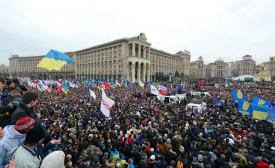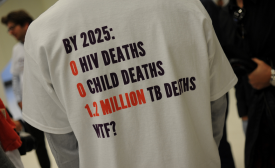public diplomacy
The Crimean crisis hits close to home – very close for many in Sacramento, home to one of the largest Ukrainian diaspora communities in the United States. While targeted sanctions against Russia are about to kick in and the tense situation throughout Ukraine remains unpredictable, American policies going forward are likely to be influenced by Ukrainian nationals over time, even after the story fades from current news cycles.

The Crimean crisis hits close to home – very close for many in Sacramento, home to one of the largest Ukrainian diaspora communities in the United States. While targeted sanctions against Russia are about to kick in and the tense situation throughout Ukraine remains unpredictable, American policies going forward are likely to be influenced by Ukrainian nationals over time, even after the story fades from current news cycles.
From the wild popularity of such shows as “24” with super-agent Jack Bauer out to save the world, to the popular sequels of the end-of-the-world “Transformers” movie, American television series and movies have always played well in China.
As an active member of the Jewish community in Chile, a small minority making up only 0.1% of our country's population, far too often I have had to step up and defend you, Israeli tourists, as well as other Jews visiting here.
U.S. National Security Advisor to President Obama Susan Rice and U.S. Under Secretary of State for Public Diplomacy and Public Affairs Richard Stengel are promoting through social media State Department’s response to Putin’s propaganda machine. The Obama Administration has offered so far very little help to the Broadcasting Board of Governors (BBG), which oversees such journalistic media outlets as Radio Free Europe / Radio Liberty (RFE/RL) and the Voice of America (VOA).
It's often said that the closest interaction many Americans have with other countries' cultures is through food. That kind of culinary diplomacy is particularly common in Washington, D.C., where immigrants from all over the world have cooked up a diverse food scene.
In this video, First Lady Michelle Obama congratulates the naming of the Smithsonian's National Zoo's giant panda cub, born August 23,2013. Panda diplomacy was jump started by First Lady Pat Nixon and has strengthened the friendship between both nations. Mrs. Obama states, "This cub both exemplifies the common bond between our nations and the bright future of this magnificent species."

International Relations Professor, Alan Henrikson once wrote that public diplomacy should be thought of as a form of engagement.







